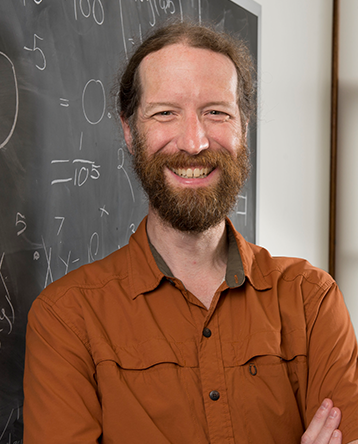Neil Donahue
Thomas Lord Professor, Chemical Engineering, Chemistry, Engineering and Public Policy
Director, Steinbrenner Institute for Environmental Education and Research
Thomas Lord Professor, Chemical Engineering, Chemistry, Engineering and Public Policy
Director, Steinbrenner Institute for Environmental Education and Research

Neil Donahue is a professor in the Departments of Chemistry, Chemical Engineering, and Engineering and Public Policy at Carnegie Mellon University. He also directs the Steinbrenner Institute for Environmental Education and Research. He seeks to understand how Earth’s atmosphere works, and how humans affect the atmosphere. One of his objectives is to help all graduating Carnegie Mellon students understand the climate problem and to apply their outstanding problem solving skills to solutions of this enormous challenge. He is a member of numerous professional societies, a Fellow of the American Geophysical Union, and an editor with several academic journals.
Donahue’s research group focuses on the behavior of organic compounds in Earth’s atmosphere. They are world experts in studying what happens to compounds from both natural sources and human activity when they are emitted into the atmosphere. Recently his research has focused on the origin and transformations of very small organic particles, which play a critical role in climate change and human health. Particles scatter light, influence clouds, and kill roughly 50,000 people each year in the US, mostly of heart attacks.
Donahue’s father taught physics at Pitt, and Donahue received a B.S. in Physics from Brown University in 1985. He received a Ph.D. in meteorology from MIT in 1991, and spent nine years as a research scientist at Harvard before returning to Pittsburgh in 2000. He lives with his wife Maren Cooke and daughters Kielan and Innes in Squirrel Hill. They have three kW of photovoltaic solar panels on their roof. Donhaue is also an avid road cyclist; you may find him on one hill or another around town.
1991 Ph.D., Meteorology and Atmospheric Chemistry, Massachusetts Institute of Technology
1984 BA, Physics, Brown University
AP News
ChemE/EPP’s Neil Donahue comments on a Kentucky train derailment fire in AP News. Sulfur dioxide was thought to be released during the crash, prompting the residents of Rockcastle County to be evacuated. “It is just nasty, caustic, and acidic stuff that hurts. It’s unpleasant to be in,” Donahue says.
Royal Society of Chemistry
ChemE/EPP’s Neil Donahue was recently featured in a podcast posted by the Royal Society of Chemistry. In the “Intro to Air Pollution” episode on the show Brought to you by chemistry, he talks about air quality and how pollution can impact the body.
ABC News
ChemE/EPP’s Neil Donahue commented on a study that found Earth exceeds its “safe operating space for humanity” in six out of nine categories.
The Hill
ChemE/EPP’s Neil Donahue comments on “climate havens” with The Hill. “It’s an absurd concept with a grain of truth,” Donahue says.
AP News
ChemE/EPP’s Neil Donahue discusses the effects of vinyl chloride and dioxins from the East Palestine train derailment with AP News. “Vinyl chloride is bad, dioxins are worse as carcinogens and that comes from burning,” he says.
The Hill
ChemE/EPP’s Neil Donahue acknowledges Pittsburgh’s historic reputation as the “Smoky City” while discussing current air quality issues.
The Hill
ChemE/EPP’s Neil Donahue explains Pittsburgh’s comparative cooler summer temperatures in an interview with The Hill.
The Hill
ChemE/EPP’s Neil Donahue talks with The Hill about the Canada wildfire smoke and his predictions of when it will dissipate. It will disperse in “probably another day or two, according to the forecast,” he says.
Vox
ChemE/EPP’s Neil Donahue quoted by Vox in a story about recent air pollution challenges.
Delaware Valley Journal
ChemE/EPP’s Neil Donahue talks to the Delaware Valley Journal about Pennsylvania’s new bill that focuses on carbon sequestration and storage as a solution for reducing carbon emissions.
Healthline
ChemE/EPP’s Neil Donahue was interviewed by Healthline on the health risks of increased particulate matter in the atmosphere due to air pollution.
Vox
ChemE/EPP’s Neil Donahue was quoted in Vox on wildfires and air pollution in the context of climate change.